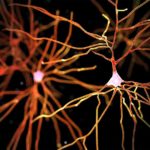A team of researchers at Flinders University begun testing on rodents a vaccine to prevent dementia, acknowledging its effectiveness in inhibiting and removing tau protein aggregates theorized to be the cause of Alzheimer’s disease (AD).
The findings, released in Alzheimer’s Research & Therapy, may provide researchers the pathway for clinical trials in humans in the coming years, a potentially significant step forward for the treatment of a neurodegenerative disease affecting more than 5 million people in the U.S. alone.
The study tested the vaccine developed in the Australian laboratory of Nikolai Petrovsky, a professor at Flinders University. The vaccination approach targeted beta-amyloid (Aβ) and tau pathologies, both hallmark indicators of Alzheimer’s disease.
“A combinatorial vaccination approach was designed to concurrently target both Aβ and tau pathologies,” the study reads.
“Tau22/5xFAD (T5x) bigenic mice that develop both pathological Aβ and tau aggregates were injected intramuscularly with a mixture of two MultiTEP epitope vaccines: AV-1959R and AV-1980R, targeting Aβ and tau, respectively, and formulated in AdvaxCpG, a potent polysaccharide adjuvant.”
Upon receiving a single vaccine of AV-1959R and AV-1980R, through intramuscular route of administration, the results showed a significant reduction of tau among the rodents.
“T5x mice immunized with a mixture of Aβ- and tau-targeting vaccines generated high Aβ- and tau-specific antibody titers that recognized senile plaques and neurofibrillary tangles/neuropil threads in human AD brain sections,” the results affirm.
“Production of these antibodies in turn led to significant reductions in the levels of soluble and insoluble total tau, and hyperphosphorylated tau as well as insoluble Aβ42, within the brains of bigenic T5x mice.”
The results demonstrate the vaccine’s efficiency toward both hallmark pathologies of Alzheimer’s and could be detrimental in the near future as it heads for potential clinical trial testing in humans.
“This data suggests that a combined vaccination approach could potentially be used to induce strong immune responses against both of the hallmark pathologies of AD in a broad population of vaccinated subjects with high MHC class II gene polymorphisms,” the findings concluded. “These findings warrant further development of this vaccine technology for ultimate testing in human AD.”


